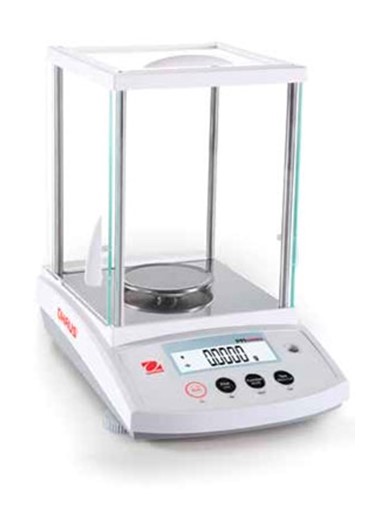The volume of investments in startups in the first quarter increased by 27%
The volume of venture investments in Russian projects in the first quarter of 2022 amounted to more than $680 million, which is 27% more than in the same period in 2021, according to data from the Dsight analytical platform prepared for RBC. By venture investments, the company understands investments of up to $150 million in risky, technologically advanced and potentially highly profitable projects. When evaluating the market, data on transactions from open sources were taken into account.
Investments in companies at the stage of maturity (the business demonstrates stability and constant growth) grew especially strongly - 11 times, to $ 514 million. At the seed stage (at the stage from the idea to the regular commercial stage), the increase was also significant - by times, up to $39.3 million.
The total number of transactions in the first quarter increased slightly - there were 50 compared to 46 a year ago. However, if we exclude large transactions with startups of Russian founders abroad - Vivid Money and Miro companies (the first received $114 million from former investors in the person of Greenoaks Capital and Ribbit Capital, as well as a new one - SoftBank structure; Miro agreed to raise $400 million from the American fund Iconiq Capital), it turns out that the market volume has decreased by 9%.
"Kommersant" learned about the desire of a third of cybersecurity startups to leave RUSSIA Technology and media
Global venture funding in the first quarter decreased by 5.5% compared to the same period in 2021 and amounted to $145 billion, KPMG previously estimated.
How the crisis affects the venture capital market
In the first quarter, investments from private funds, especially the Family Office, grew, as wealthy Russians were squeezed out of the financial market of Western countries and are now looking for capital in Russia and friendly states. Investments from state and corporate funds, on the contrary, decreased. This year, only one transaction was made with a government agency and two with corporate funds. The volume of investments from investors of this type decreased by 50 and 95%, respectively.
Read on RBC Pro Pro Not all international business is gone.How to build communications to the remaining Instructions Pro Flawed - to the exit:which managers will survive in the next two years Articles Pro An employee moved abroad: 4 options,how to make a job Instructions Pro Ghost Checkered Bag:why parallel imports won't bring back shuttles Predictions Pro $170 million error:why Amazon tried to create an alternative to the iPhonePro How can a participant in public procurement defend their rights during a period of change:5 Tips Instructions Pro How the Relevance of Digital Assets and Currencies Is Changing ArticlesAccording to the founder of Dsight Arseniy Dabbah, so far the market remains inert: in the first quarter, many deals were completed and announced from those previously discussed. As Aleksey Solovyov, the founder of the investment company A.Partners, noted, the deal is not announced immediately after the signing of the documents - on average, it takes two to three months from the term sheet (agreement) to the announcement. “Deals not concluded after February 24 will have an impact on the statistics of the second quarter,” he said.
Experts explained the assessment of startups from Russia below Western projects Technology and media
But already at the end of March - beginning of April, serious changes in the weekly dynamics of the number of transactions and in the valuation of companies became noticeable, Dabbah emphasizes. He predicts that by the end of the year the market may fall in the volume and number of transactions by two or three times. “The main blow will be taken by growing mature startups. Valuations for transactions with mature companies will decrease by two to four times compared to the previous round, especially if the company urgently sells Russian business. Many companies that operate in Russia and Western countries are now faced with a choice - to stay or sell the Russian business, ”says Dabbah. According to him, the startup and investor market is divided into those who decide to work in Europe, North America, and those who work in Russia and the CIS. European countries attractive for Russian startups began to close for relocation in March. Startups from Russia that cannot enter developed markets are trying to get into the CIS, Asia, and the Middle East. IT startups are mainly moving to Armenia, Georgia, the Baltic States, the United Arab Emirates, Cyprus, Turkey, Serbia and a number of other countries.
The situation with funds is similar - some of them remain and focus on Russian startups, but the majority decided not to invest in Russia, opening new structures in Asia, the UAE.
According to Aleksey Solovyov's forecast, in the next quarter "we will see a traumatic fall" of the Russian venture capital market for an indefinite period. In recent years, more than 50% of the market volume was formed by attracting investments from international funds in companies founded by Russians and operating abroad. “Obviously, these deals will disappear in the near future,” Solovyov is sure.
Former co-CEOs of Tinkoff to launch startup Kinetic Business
According to Artur Shubaev, Vice President of Advance Capital, in general, the number of mergers and acquisitions (M&A), taking into account the announcements of closed deals, has decreased: until February 24, an average of two to three deals were announced in Russia per day, now - two three a week, but there is "a lot of active discussion and negotiation." Shubaev did not predict when the market will recover in terms of the number of transactions, but noted that in 2022 "it will definitely fall in terms of volume."
How has the value of assets changed?
For many startups that have chosen the Western market, it became necessary to sell the Russian part of the business, but it is impossible to quickly sell even a good company in Russia, so their valuations began to fall sharply, said Arseniy Dabbah. The “special situations” segment included not only traditional business (foreigners leaving, companies in a difficult situation), but also technology start-ups.
According to Artur Shubaev, now the multipliers have significantly decreased due to the fact that many assets with discount valuations have appeared on the market - at the level of two or three EBITDA. “Some foreign companies are ready to sell assets in Russia at a low price, because the goal is not to make money on the deal, but to reduce political pressure on the company. Such deals for buyers as lottery tickets - the chances of winning are not very high. However, there are many buyers on the market who are actively looking for just such deals,” he explains.
Yandex to Suspend Investments in Russia and Abroad Due to Sanctions Business
Managing partner of TMT Investments Artem Inyutin noted that the situation on the stock market always affects the venture market with a delay. In his opinion, the drop in quotes of many companies from the high-tech sector, which began in December last year, has not yet affected - the projects have not adjusted their multipliers following the stock exchange. “Now many international funds are slowing down their investments, waiting for market multipliers. In my opinion, in July-August, a situation is possible when many startups, without waiting for rounds of high valuations, will adjust their multipliers to exchange ones, and then the funds will again begin to invest more intensively, ”says Inyutin.
According to a representative of Advance Capital, the situation on the market is further complicated by the fact that many of the companies that were active in M&A until recently (Sberbank, Yandex, Ozon, etc.) have encountered problems in their main areas of activity. “Most likely, for Sberbank at the moment it is much more priority to deal with problems with the core business and only after that return to the development of the ecosystem. The new management of VK intends to continue building the ecosystem, but will look mainly at profitable assets,” he says.
Artur Shubaev stressed that in the near future unprofitable assets will not be of interest to investors. “This will have very bad consequences for the venture capital market. Even very promising startups that have not yet managed to turn a profit will have to seriously cut costs or be sold at very discount valuations. Some ideas will never be implemented,” he predicts.
Investors in Russia are mainly switching to a dividend strategy, that is, they prefer assets that are already profitable or can break even within a year, Arseniy Dabbah agrees. Among other trends that will be the main ones in the venture capital market in the near future, he noted the possibility of state support for projects related to import substitution.



























































